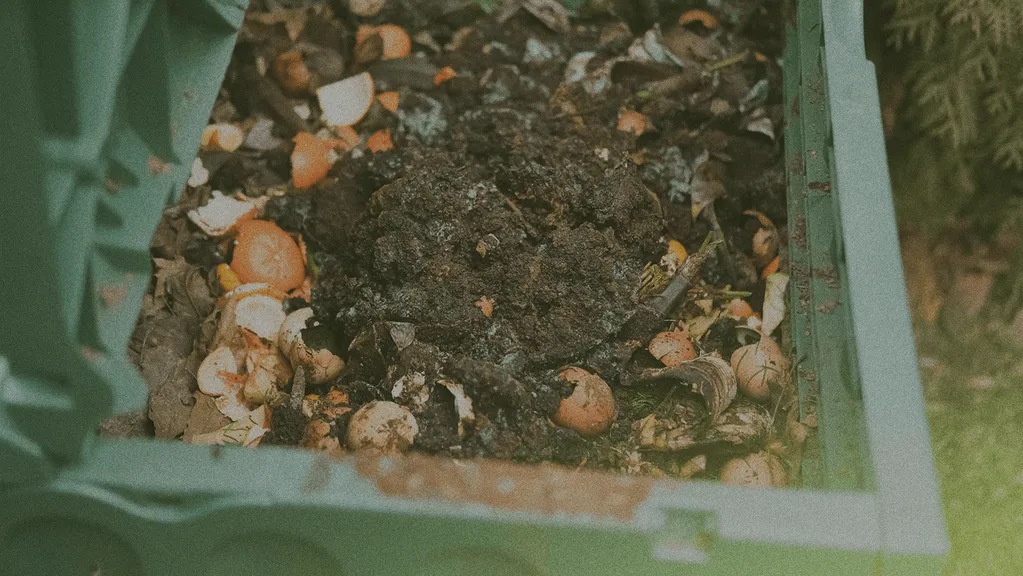BLOG
Alliance Disposal Becomes Sourgum Waste
Read more

While significant effort is devoted to reducing, reusing, and recycling plastics, food waste is an often overlooked issue. In the United States, a surprising amount of food goes to waste each year. The EPA reports that food comprises 22% of all municipal solid waste (MSW)—more than any other waste category. Instead of sending that waste to landfills, where it produces harmful greenhouse gases, there’s a simple solution that turns scraps into something valuable: composting.
Composting is the natural process of turning everyday food scraps and yard waste into a nutrient-rich material that can be returned to the soil. Rather than allowing organic waste to sit in a landfill and produce methane, which is a potent greenhouse gas, composting accelerates the natural decay process under controlled conditions.
The process is simple: when microorganisms, such as bacteria and fungi, have the right combination of food, air, moisture, and warmth, they thrive and break down organic matter into a dark, crumbly soil amendment.
Although composting is often seen as a recent trend, it is actually one of the oldest methods of waste recycling known to humans, with historical records dating back thousands of years.
Organic waste, such as food scraps, yard trimmings, and paper products, makes up a large share of what Americans throw away each year. Instead of treating this material as garbage, composting returns it to the soil. Every pound of waste diverted from landfills reduces the volume of trash municipalities must haul, manage, and bury.
Methane is a greenhouse gas far more potent than carbon dioxide in the short term, and landfills are a major source of its human-generated emissions. Composting changes that process: when organic waste decomposes in the presence of oxygen, it produces carbon dioxide, water, and nutrient-rich organic matter instead of methane.
Compost is rich in essential nutrients, such as nitrogen, phosphorus, and potassium, along with trace minerals that plants need for healthy growth. When incorporated into soil, compost improves soil structure, increases porosity, and strengthens the soil’s ability to hold water and air. These improvements make crops more resilient to drought and reduce the need for synthetic fertilizers that can harm ecosystems.
Healthy soil enriched with compost can retain far more water than degraded soil. Studies show that even a small increase in organic matter in soil results in tens of thousands of additional gallons of water stored per acre. For farmers, this means crops require less irrigation. For communities, it means less strain on water sources such as rivers, reservoirs, and aquifers.
Households across the country throw away hundreds of dollars worth of groceries each year. While the best solution is to buy and use food more carefully, there will always be unavoidable scraps such as eggshells, peels, and coffee grounds. With composting, these leftovers are not wasted but put to good use.
The science behind composting comes down to the fact that microorganisms need four basic conditions to thrive. It works because millions of tiny organisms are constantly eating, breathing, and multiplying inside the pile. To keep them alive and active, you have to give them the following elements:
Nutrients
Microbes need both nitrogen and carbon.
Nitrogen comes from fresh materials such as fruit and vegetable scraps, coffee grounds, and grass clippings.
Carbon comes from dry materials such as leaves, sawdust, and shredded cardboard.
When nitrogen and carbon are balanced, microbes grow quickly and keep the process active.
Oxygen
Most of the organisms driving composting are aerobic, meaning they require air.
Without oxygen, the pile compacts, slows down, and produces foul odors.
Turning the pile or designing airflow into the system keeps the interior healthy.
Moisture
A compost pile should feel like a wrung-out sponge: damp but not soggy.
If it dries out, microbes go dormant.
If it’s waterlogged, oxygen is forced out and the pile starts to smell.
Heat
As microbes feed, they generate heat.
A hot pile decomposes faster and more thoroughly.
High temperatures also kill weed seeds and harmful pathogens.
When microbes have the right mix of nutrients, air, water, and warmth, they can do their job. The result is the steady transformation of scraps and yard waste into finished compost.
Fruits and vegetables — break down quickly and add nitrogen
Coffee grounds and tea bags — decompose well and add nutrients
Grass clippings — good nitrogen source, but balance with dry “browns” such as leaves
Dry leaves and small twigs — supply carbon and structure
Nut shells and sawdust — carbon-rich, break down steadily
Shredded newspaper or cardboard — easy carbon source, helps absorb moisture
Large branches and thick wood — too slow to break down
Coal or charcoal ash — may contain harmful chemicals
Diseased plants — pathogens can survive and spread in soil
Dairy products — attract pests and create odors
Oily foods — slow to break down, cause smell issues
Meat, bones, and fish scraps — attract rodents and can carry bacteria
Sourgum was founded on the belief that waste and recycling can be done differently. With generations of experience in the industry, we understand what works—and what doesn’t—when it comes to serving customers and protecting the environment. Because sustainability is built into every step, we make it possible for residents and businesses to reduce waste while lowering costs.
Sourgum provides reliable service at the best price, with a commitment to sustainability. We divert waste from landfills and plant a tree for every order.
